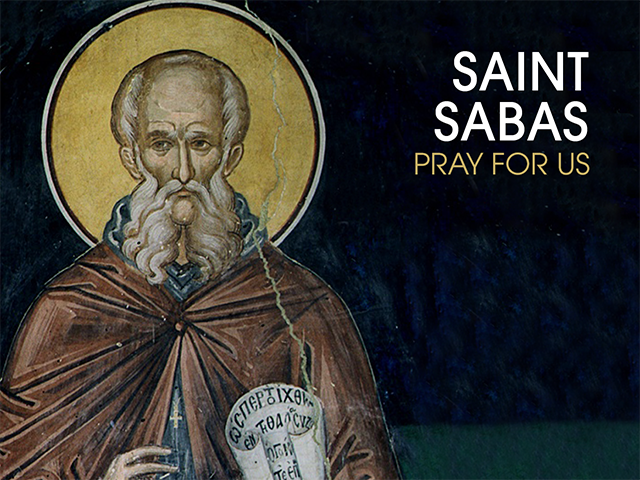



St. Sabas (439-532 A.D.) was born near Caesarea in Cappadocia to an illustrious family. His father was an army officer who, being restationed in Alexandria, left Sabas (along with his estate) in the care of his wife's sister. Sabas was severely mistreated by his aunt, and he fled from her to live with his father's brother instead. This move led to a family feud over the management of his father's estate, and Sabas, a meek child disgusted with their worldliness, sought refuge in a monastery. He was well-treated there, and although only a child, excelled in the monastic life. When he reached the age of eighteen, after living in the monastery for ten years, Sabas traveled to Jerusalem to visit the holy places and to become a desert hermit. He lived in a Jerusalem monastery for a time before dwelling alone in a desert cave near Jericho, spending his days in prayer and penance. Because of his renowned virtue and holiness many men desired to follow his example. He was ordained a priest so that he could better direct the 150 monks in his care. Sabas became an important leader in the early Church by founding monasteries, fighting heresy, and serving in delegations to the Roman Emperor. He is one of the most highly-regarded patriarchs of Palestine, and is considered one of the Fathers of Eastern monasticism. His most important monastery, the Great Laura, is one of the oldest monasteries in the world and is still inhabited by Eastern Orthodox monks. St. Sabas' feast day is December 5th.